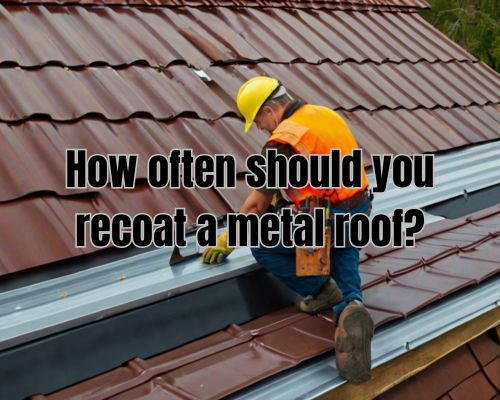When it comes to home improvement, understanding the lifespan of your gutter system is crucial. Knowing how long your gutters will last can help you plan for repairs or replacements and keep your home protected from water damage.
Gutter lifespan varies based on material. Aluminum gutters typically last around 25 years, vinyl gutters around 10-15 years, and copper gutters lasting up to 50 years or more.

Considering the significant investment gutters represent, it’s important to choose the right materials and maintain them properly to maximize their lifespan.
Gutters Of West Palm Beach highlights that regular maintenance, such as cleaning and inspections, can greatly extend the functionality of your gutter system.
By staying informed about the expected lifespan of various gutter materials, you can ensure your home’s exterior remains in top condition, saving time and money in the long run.
Understanding Gutter Lifespan
Gutters serve as an essential component of your home’s defense against water damage. Their lifespan depends on various factors such as material type, installation, and maintenance.
Recognizing signs of deterioration and understanding the average lifespan of different materials can help in planning timely replacements.
Factors Influencing Lifespan
The longevity of gutters is influenced by the material used, climate conditions, and how well they are maintained.
Aluminum, vinyl, and copper are common materials, each offering different lifespans.
Proper installation and regular maintenance, such as cleaning and addressing minor issues quickly, are crucial.
Harsh weather like heavy rain or snow can cause rust or other types of damage, reducing the lifespan.
Clogging from debris, such as leaves and twigs, is another issue. It can lead to water overflow, causing damage to both the gutter and the home.
Using gutter guards or screens can reduce clogs, thereby extending the lifespan. Regular checks and prompt repairs can mitigate these issues.
Signs of Deterioration
Knowing when to replace gutters can save you from extensive and costly repairs.
Sagging gutters, consistent clogging, and signs of gutter damage are critical indicators.
Inspect the gutter sealant for wear, as seals can fail over time, leading to leaks.
Peeling paint or rust spots often indicate water is not draining properly, which can lead to mold growth around your home.
Look for gaps or separations from the house, which are signs that the gutters are not securely fastened.
Early detection and intervention can extend their life and maintain their effectiveness.
Average Lifespan of Material Types
Different materials have distinct lifespans.
Vinyl gutters usually last between 10-20 years, requiring more frequent replacements than other gutter types due to their susceptibility to harsh weather.
Aluminum gutters can serve you well for 20-30 years with proper care and maintenance.
Copper gutters, while more costly upfront, offer the longest lifespan, enduring 50 years or more. They also add aesthetic value to your home.
Seamless gutters, made from continuous pieces of material, help reduce leaks and often last longer due to fewer joints susceptible to failure.
Maintenance and Replacement
Regular maintenance of your gutters can extend their lifespan and prevent costly repairs. Identifying when to replace them is equally essential to avoid severe issues like water damage.
Effective Maintenance Tips
Routine cleaning is crucial to prevent clogged gutters that can cause overflowing and potential water damage.
You should remove leaves and debris regularly, particularly during the fall when gutters are most prone to blockages.
Investing in gutter guards will aid in reducing the frequency of cleanings by keeping out larger debris.
Inspecting your gutters and downspouts can reveal signs of damage or rust.
Tighten any loose gutter fasteners, and ensure downspouts are securely attached, directing water away from your home’s foundation.
Utilize tools like a garden trowel or a gutter scoop for efficient cleaning. Maintaining a consistent cleaning schedule minimizes the risk of major gutter problems.
Recognizing the Need to Replace
Understanding when to replace gutters is essential to prevent issues like flooding or ice dams.
If you notice visible sagging, extensive rust, or multiple sections with holes, replacement could be necessary.
Frequent gutter repair may signal that a complete replacement is more cost-effective.
Watermarks or signs of water damage on the home’s siding or foundation indicate that gutters are not performing correctly.
Similarly, if gutters separate at their seams or show significant wear despite regular upkeep, it’s time to consider replacement. A professional assessment, see Gutters Of West Palm Beach, can provide clarity on the state of your rain gutter system.
Choosing the Right Replacement
When it’s time to replace gutters, selecting the right materials involves considering factors such as durability, aesthetics, and cost.
Common materials include aluminum, vinyl, and stainless steel.
Aluminum is popular for its balance of cost and durability, while vinyl offers a budget-friendly option. Meanwhile, stainless steel, although pricier, provides exceptional longevity.
Consider installing seamless gutters to minimize leaks and reduce maintenance.
Professional gutter installation ensures proper alignment and support, enhancing performance and lifespan.
Evaluate your local climate conditions, as harsh weather can influence the choice of gutter material.
Always consult with an experienced contractor to determine the most suitable system for your home.

